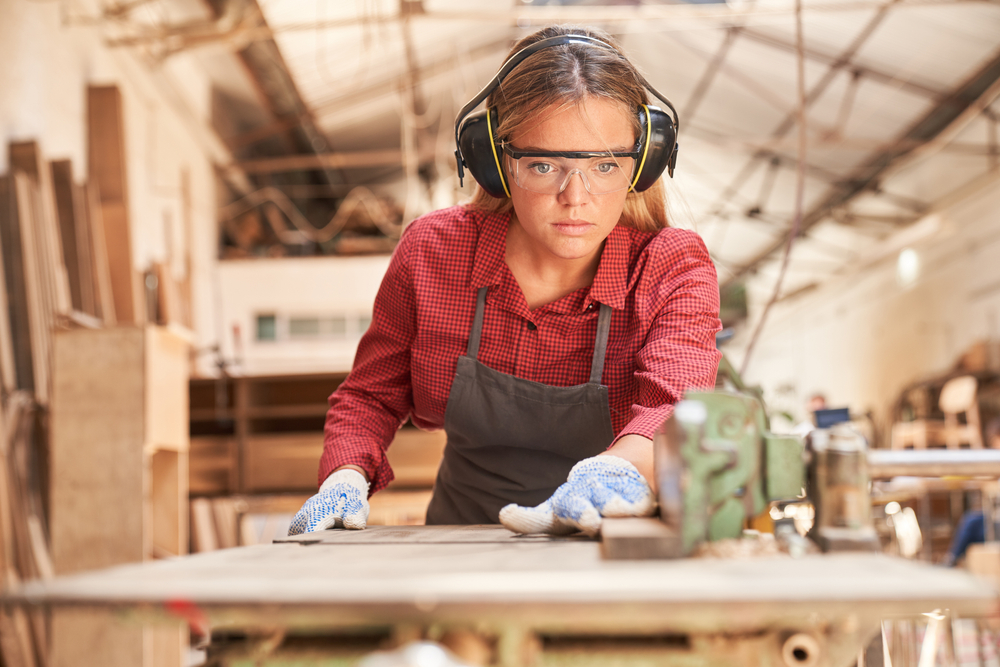
Whether you’re attending concerts, at work, or doing some yard work, hearing protection is indispensable in keeping your ears safe from harmful noise levels. However, you could be left exposed to potential risks if any one of a number of potential factors interferes with your hearing protection’s effectiveness. In order to understand and successfully maximize the benefits of your ear protection, it’s crucial to understand these issues.
Why hearing protection fails: common scenarios
Even when you observe best practices, unforeseen issues can arise. You steer clear of overly loud settings as much as possible, use earplugs at concerts, and vigilantly use earmuffs at work. Yet, some variables can still disrupt your hearing protection’s effectiveness. Fortunately, you can ensure the protection of your hearing by becoming aware of these common pitfalls and making educated adjustments.
1. Choosing the wrong hearing protection for the situation
Hearing protection isn’t one-size-fits-all, and choosing the wrong type for a given setting can decrease its effectiveness.
Generally speaking, hearing protection falls into two main categories:
- Earplugs: Little foam or rubber plugs that insert tightly into the ear canal.
- Earmuffs: Bigger, headphone-like device that goes over the entire ear.
Each kind has its appropriate use case:
- Earplugs are appropriate for environments with continual noise levels, including factory floors or airplane cabins.
- Earmuffs are better for settings with periodic noise, such as a construction site where machinery starts and stops constantly.
Earmuffs are easier to handle when there is a need to frequently put on and remove your hearing protection. Disposable earplugs, in contrast, can leave you vulnerable to hearing damage because they can be easily misplaced. Choosing the right hearing protection for your requirements is the first step toward protecting your hearing effectively.
2. Individual anatomy impacts fit and effectiveness
Every individual’s ears are unique, meaning that not all hearing protection devices will fit everybody equally well. An average sized ear is what basic earplugs and earmuffs are designed for, but a more customized solution might be needed for your ear’s anatomy.
- Larger ear structures: Earmuffs could be uncomfortable if your ears are larger than average creating gaps in the seal.
- Smaller ear canals: If you have tight ear canals, standard-sized earplugs may not create an effective seal, reducing their noise-blocking abilities.
If your hearing protection doesn’t fit correctly, you could become discouraged and choose to quit using them altogether which can endanger your hearing. Think about buying custom-fitted earplugs or professionally fitted earmuffs if you spend a great deal of time in loud settings. Deciding to go with a more customized approach will provide you with increased comfort and effectiveness, keeping your hearing safe in any situation.
3. Failing to maintain or replace ear protection
In order to stay effective, hearing protection devices need to be correctly maintained just like any other devices do. Their ability to supply sufficient protection can be jeopardized by things like improper cleaning, wear and tear, and failure to replace them when necessary.
Here’s how to take care of your hearing protection:
- Replace Cushions: The pliability of earmuff cushions can diminish over time. Replace them when necessary to maintain a proper seal.
- Inspect for Damage: Check the elastic band on earmuffs regularly. A slack or stretched band can decrease their snug fit, lowering their noise-blocking capacity.
- Clean Properly: Earplugs and earmuffs are exposed to earwax and other debris, which can build up over time. In order to safely and effectively clean your earplugs or earmuffs, consult the manufacturer-recommended cleaning instructions.
Your hearing protection will be less effective and potentially useless if you disregard these simple maintenance duties. Routine maintenance is essential to extend their lifespan and ensure reliable performance.
The advantage of a hearing specialist
If you’re unsure whether your hearing protection is working, schedule a consultation appointment with us. We can examine your current devices, recommend alternatives, and even provide custom solutions tailored to your particular requirements.
Protecting your hearing is a lifelong commitment, and it’s worth the effort to ensure you’re using the right tools for the job. By addressing these common challenges, you can confidently safeguard your ears from damaging noise and preserve your hearing for years to come.